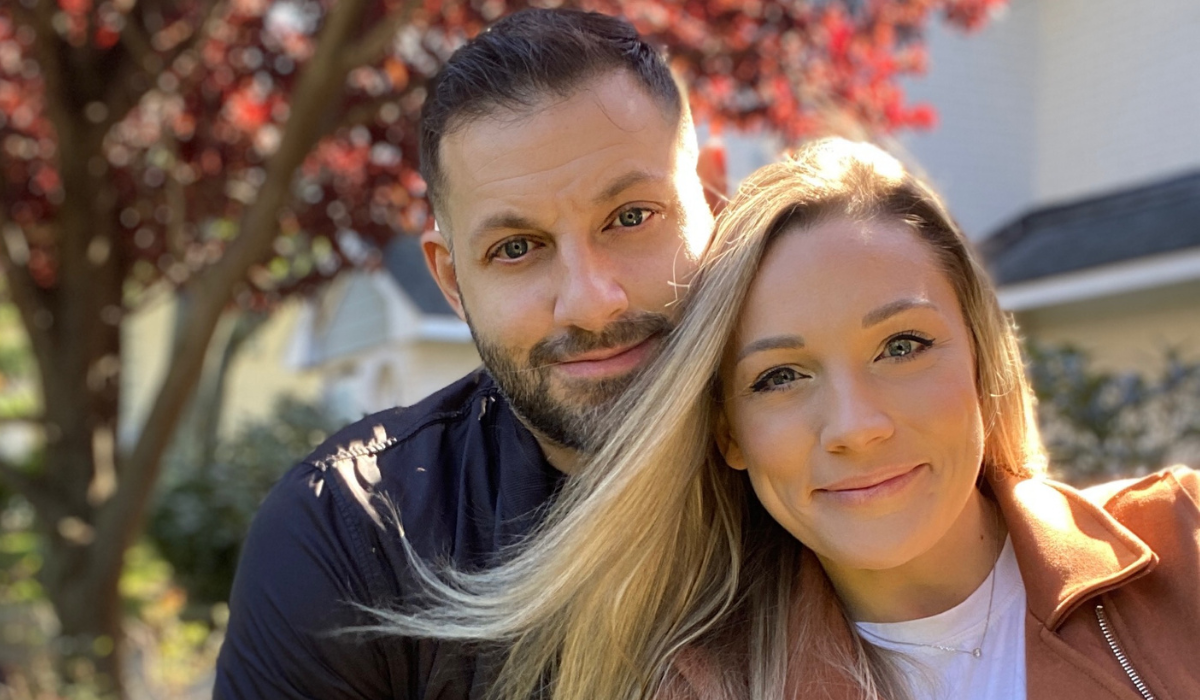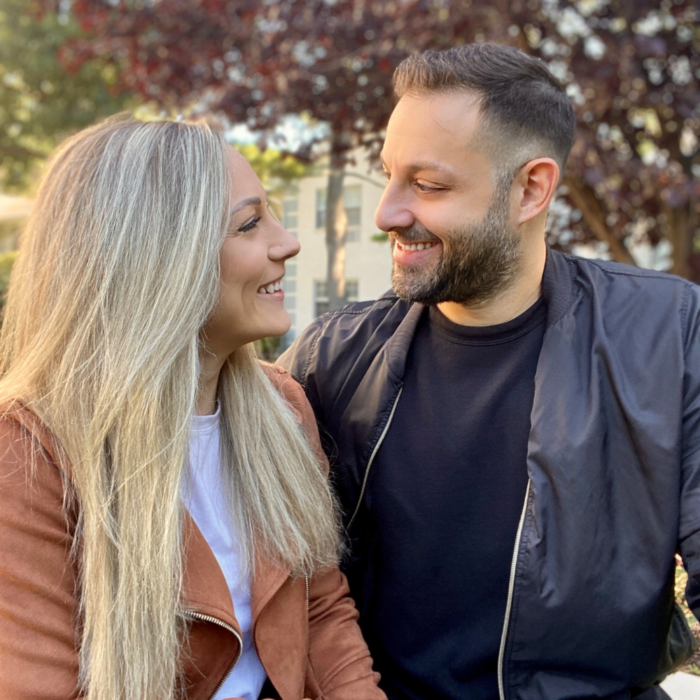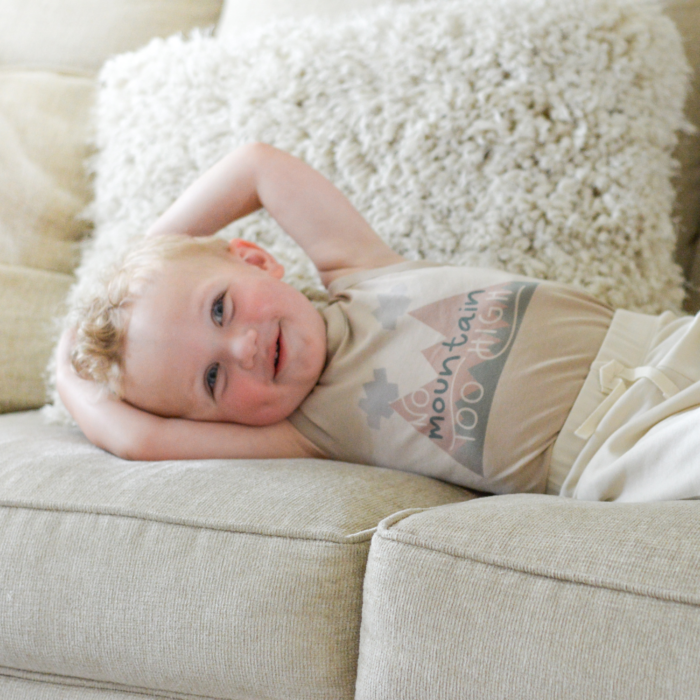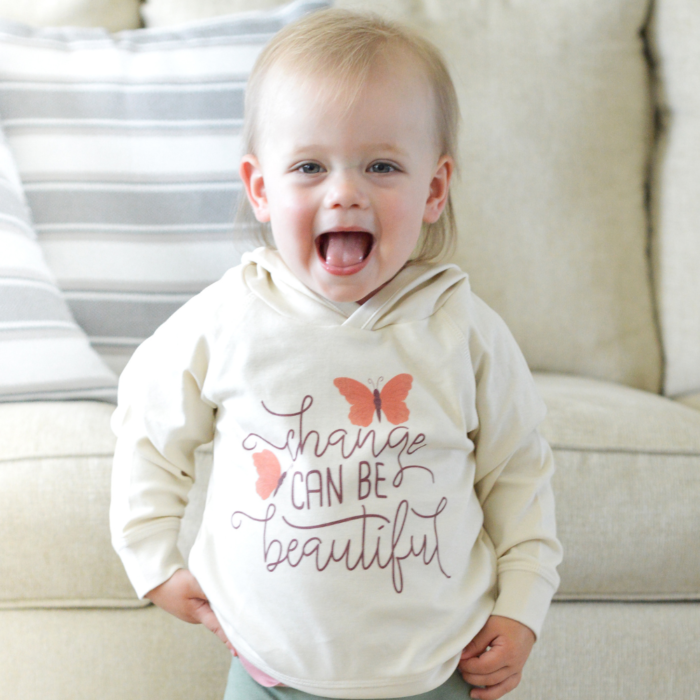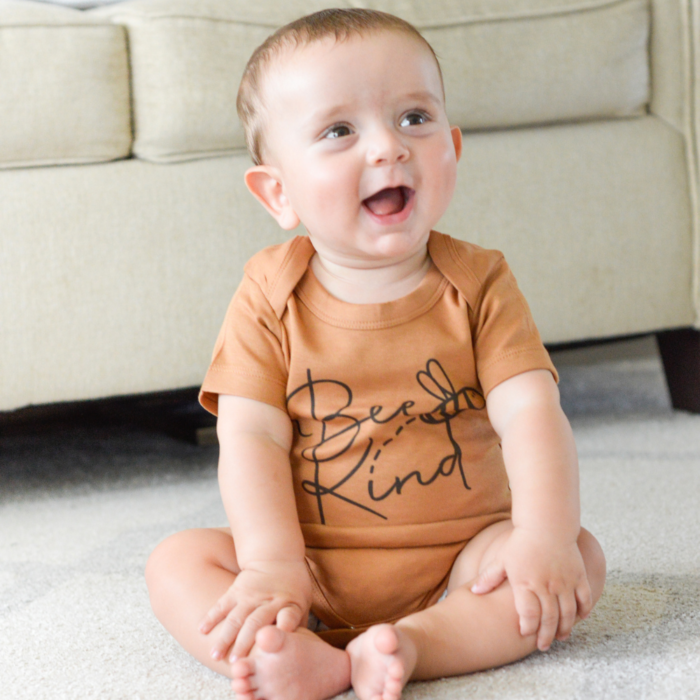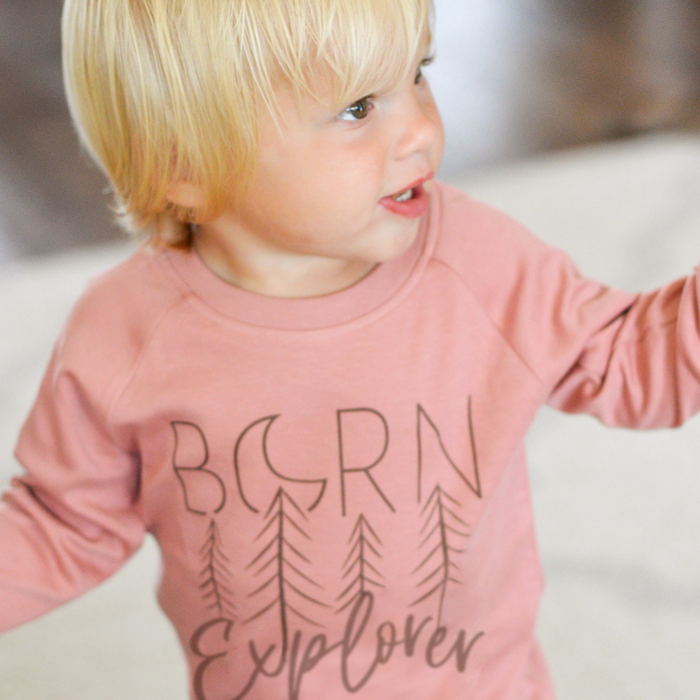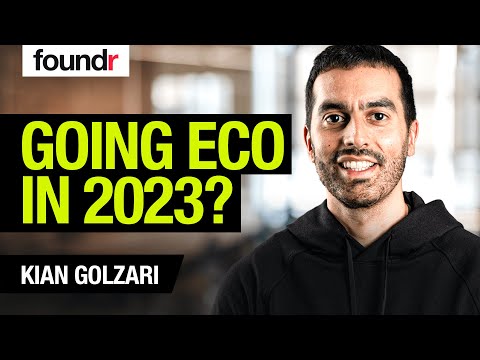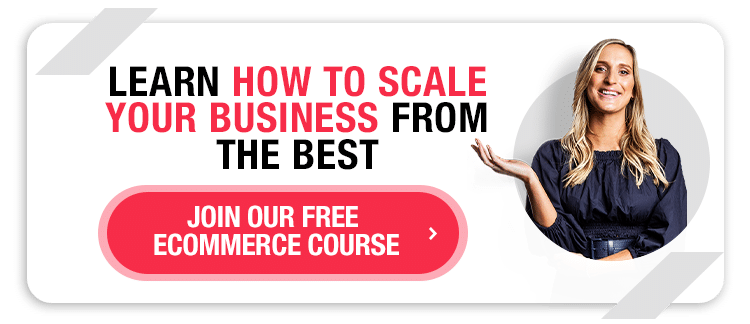Sometimes you can stumble upon a business idea accidentally.
Abi Horton couldn’t find any clothing designs she liked while shopping for her friend’s baby shower. Instead, she ordered a plain baby bodysuit and had her partner, Danny Cozzolino, create a custom design and print it on the fabric.
And there it was—the idea.
“We were looking for a new business venture, and we wanted something that was just a little bit more unique,” Horton says.
With Cozzolino’s background in design and screen printing, the baby clothing concept seemed like a natural fit, and so Beaus+Babes began.
Its mission is to create baby clothes made of 100 percent organic cotton with uplifting and inspiring designs. In addition, Beaus+Babes offers a return-to-donate model that allows customers to give back outgrown clothing.
What started as a gift idea for a baby shower turned into a full-fledged business. But Beaus+Babes didn’t transform into a business as simply as the idea came.
The Cotton Win
The first step Horton and Cozzolino took to make their idea a reality was taking the Foundr Start & Scale course taught by Gretta van Riel.
“I had no idea where to start with this before,” Horton says.
“It really gave us a pathway to be able to just start.”
Babies are big business. A report from Allied Market Research says baby care products reached $5.58 billion in sales in 2021. That’s an intimidating market to step into for any business, let alone a startup side hustle.
Horton and Cozzolino had a creative skill advantage from their day jobs living in New York City—Horton is a voice-over artist, and Cozzolino owns a silk-screening business—but they knew it wouldn’t be enough to break through in the baby industry.
“We went with the idea and rolled with it and then started doing our research a little more,” Cozzolino says. “[We ordered samples] from similar companies [to see] how they package and the verbiage they use.”
A trend emerged from their product market research showing the desire for organic materials. Traditionally, mass production of cotton clothing uses chemicals—a process parents are becoming leery of due to the sensitivity of newborn skin.
Horton and Cozzolino surveyed friends, families, and followers who had children to ask about the benefits of organic cotton.
“At least 50 percent of people were either interested in buying organic cotton because they already knew about it or wanted to know more because it was something that they wanted to explore,” Horton says.
Horton and Cozzolino were committed to building a brand around sustainable practices, but they wanted to close the loop on the products’ life.
Read more: How April Scott Started a Luxury Sleepwear Brand From Scratch
Returning It Forward
Horton volunteers at homeless and domestic violence shelters. During the Covid-19 pandemic, shelters wouldn’t accept in-person volunteers, but she still wanted to help. Simultaneously, while working on Beaus+Babes, Horton discovered that just selling organic products was an incomplete way to create a sustainable business.
“We all know these babies grow out of things in five minutes,” Horton says. “These great quality clothes are not getting the life that they deserve and especially the fact that we’ve paid close attention to the quality of the products that we’ve got.”
So, along with making their products 100 percent organic, using recycled packaging, and choosing water-based dyes, Horton decided to create a model that allows customers to return and donate clothing.
“[People] can come to the shelter and at least be able to have a fresh, clean pair of clothes to be able to change into for their kids,” Horton says.
Return-to-donate is an easy marketing sell, but Horton knew that to make a real impact, they would need to ensure follow-through of their customers’ desire to do good.
“That’s why we wanted to make it as easy as possible for people to be able to give back, which is why we offer the free returns,” Horton says. “So the only thing that people have to do is put it in the mail, and then we’ll take care of the rest.”
Horton says everything came together so quickly with Beaus+Babes, but the moment of realizing what they’d created happened during the first photo shoot.
“A bunch of friends and friends of friends came by, we got a photographer, and we ended up over two days [photographing] about 30 children in all the different pieces,” Horton says. “This was something completely new for me but also new for us together. […] and to know that these clothes are going to have a journey that’s just super exciting.”
Soft Launch
With a brand built around sustainability and giving back, Beaus+Babes launched in October 2021 with a product line for kids from 0 to 6 years old, including bodysuits, rompers, T-shirts, sweaters, and bottoms.
“During our launch in the first week, we looked at all the orders that we were packaging up, and I said to [Cozzolino], ‘Wow, look how far we’ve come.’”
Since then, the feedback from customers has been as smooth as their clothes.
“Definitely, the reviews have been ‘So soft, like buttery soft,’” Horton says. “Even the first time we touched it, we were like, ‘Wow, this is amazing. It just feels such good quality.’”
The couple is doing it all in-house, from marketing and packaging to screenprinting the designs using Cozzolino’s equipment. They’re also focusing on marketing and building the brand in order to move beyond the NYC market and take Beaus+Babes nationwide.
“We really believe in our product, and we believe once people see our stuff, they’re gonna want to be a part of what we’re doing,” Cozzolino says. “It’s just about getting it in front of their eyes.”
The wholesaler they selected is also committed to the same sustainable standards and gives back to children-based charities. But through the Start & Scale course, they’ve researched how to purchase straight from a manufacturer. That would reduce the overall time it takes for Cozzolino to print the designs, along with the ability to scale their minimum order quantity.
“I think that’s going to be the most exciting thing for us,” Cozzolino says. “Having our own clothing is definitely what excites me, just having our name on something that we created from scratch.”
Horton says that by expanding Beaus+Babes’ reach and customer base, they’ll have a compounding impact through their return-to-donate model. That’s why their advice to fellow early-stage entrepreneurs is to not stop.
“Don’t get down on yourself about something so silly,” Cozzolino says.
“You just keep going, and you’ll look back [in] two months, and you’ll realize how much you got done.”
Horton says she still remembers when they were lying in bed together, talking about the business idea in theory, and looks back fondly on how much they’ve accomplished since.
“We were actually looking back at some of the old logos not too long ago. And it’s just funny to see, you know, what it could have been,” Horton says. “It’s been a whole process.”
The process continues as Horton and Cozzolino scale Beaus+Babes into a successful business that gives back. Unlike the beginning of their business, that success will not happen by accident.
How to Make Your Products More Sustainable
- Ingredients Matter: Horton and Cozzolino chose to make their products from 100 percent organic cotton for health benefits and sustainability. What you put in your products is what you get out.
- Find an Ethical Supplier: Whether you use a wholesaler or a direct manufacturer, make sure they use ethical practices for workers, materials, processing, and shipping.
- Use Recyclable Packaging: Packaging waste is a problem for any product that needs to be delivered. Make sure to find packaging solutions that are organic or 100 percent recyclable.
- Think Outside the Box: How can your product do more for the planet? Beaus+Babes allows their customers to return outgrown baby clothes and donates them to domestic violence and homeless shelters.
- Make It Easy for Customers: Customers care about your sustainability practices, but you need to make it easy for them to participate. Use precise language, labeling, and communication to show your customers how to recycle packaging, return products, or give back.
Click here to take the same course that helped Horton launch Beaus+Babes.
The post How Beaus+Babes Founders Created a Baby Brand That Pays It Forward appeared first on Foundr.
